I am so great full for this place and the people who have helped me get sober and stay sober! The doctors and nurses here are amazing and I would recommend this place to anyone who is struggling with a dependency to all drugs and alcohol. I have been sober for over 3 years n ...
About CommQuest Services Massillon Recovery Campus
CommQuest is an addiction treatment center in Massillon, Ohio. The Massillon campus offers residential treatment for men as well as outpatient treatment. The residential program includes medically supervised detox and medication assisted treatment (MAT).
Additionally, they treat clients with co-occurring mental health disorders. Women can get a referral to the network’s nearby residential treatment facility in Canton. The center accepts private insurance as well as Medicaid.
Comprehensive Continuum of Addiction Care in Massillon, Ohio
Massillon is a city along the Tuscarawas River about 60 miles south of Cleveland. The city offers modern amenities and small town charm and is a good place to begin your recovery journey.
Treatment at this facility begins with a medically supervised detox, if necessary. Clients participate in group and individual counseling. You’ll listen to guest speakers and attend educational classes.
Notably, there is vocational assistance available. You’ll transition to an outpatient aftercare program when residential treatment ends.
Driver Intervention Program in English and Spanish in Stark County, Ohio
The driver intervention program (DIP) is an alternative to jail for first time offenders with an operating a vehicle while impaired (OVI) citation. There are three and six day programs with Spanish interpreters available.
The DIP is an educational program that will help you understand the physical and psychological effects of alcohol and the stages of addiction, as well as the consequences. You’ll learn about the law as it pertains to OVIs and develop a plan to avoid further intoxicated driving.
If it’s determined you have an addiction, you’ll learn about your recovery alternatives and come up with a plan of treatment. The DIP is a residential program and you’ll live at the campus for three or six days.
Confidential Free Program for Moms in Massillon
There’s a unique, grant funded program for pregnant women or moms with a child under the age of one at the Canton campus. The program is for clients with opioid or stimulant use and provides addiction treatment services, including MAT. Women receive therapy for co-occurring mental health disorders as well as pregnancy and postpartum case management.
Latest Reviews
Additionally, if you have questions or would like to discuss this topic further, please feel free to contact our Director of Withdrawal Management and Men’s Residential Services at 330-833-3393, Ext. 5752.
Your willingness to learn and support your loved one makes a meaningful difference. We’re here to help and hope to see you at our support group.
Rehab Score
Gallery
Other Forms of Payment
Private insurance refers to any kind of healthcare coverage that isn't from the state or federal government. This includes individual and family plans offered by an employer or purchased from the Insurance Marketplace. Every plan will have different requirements and out of pocket costs so be sure to get the full details before you start treatment.
Self-pay involves paying for treatment out of your own pocket. You can use savings or credit, get a personal loan, or receive help from family and friends to fund your treatment. If you don't have insurance or your insurance plan doesn't cover a specific program, self-pay can help ensure you still get the care you need.
Financial aid can take many forms. Centers may have grants or scholarships available to clients who meet eligibility requirements. Programs that receive SAMHSA grants may have financial aid available for those who need treatment as well. Grants and scholarships can help you pai for treatment without having to repay.
Sliding scale payments are based on a client's income and family size. The goal is to make treatment affordable to everyone. By taking these factors into account, addiction recovery care providers help ensure that your treatment does not become a financial burden to you or your family, eliminating one barrier to care.
Medicare is a federal program that provides health insurance for those 65 and older. It also serves people under 65 with chronic and disabling health challenges. To use Medicare for addiction treatment you need to find a program that accepts Medicare and is in network with your plan. Out of pocket costs and preauthorization requirements vary, so always check with your provider.
Medicaid is a state based program that helps lower-income individuals and families pay for healthcare. Medicaid covers addiction treatment so those enrolled can use their coverage to pay for rehab. When a program accepts Medicaid the client often pays very little or nothing out of their own pocket.
Military members, veterans, and eligible dependents have access to specific insurance programs that help them get the care they need. TRICARE and VA insurance can help you access low cost or no cost addiction and mental health treatment. Programs that accept military insurance often have targeted treatment focused on the unique challenges military members, veterans, and their families face.
Addiction Treatments
Levels of Care
CommQuest offers outpatient counseling services at five locations in Stark and Carroll Counties. All services are individualized and based on a comprehensive assessment, performed by either CommQuest or a referring agency. Outpatient services are available for both adults and adolescents by contacting CommQuest directly. The treatment is 1-2 times per week at any of their five locations, and they offer a group or individualized setting.
Residential treatment programs are those that offer housing and meals in addition to substance abuse treatment. Each program is 90 days in length and serves individuals with moderate to severe substance abuse disorders and mild to moderate mental health symptoms. The programs emphasize abstinence and recovery to enrich and empower clients to live sober, productive lives.
Intensive Outpatient programs are for those who want or need a very structured treatment program but who also wish to live at home and continue with certain responsibilities (such as work or school). Each session is 3 hours in length, they meet 3 or 5 days per week. The treatment runs for 4-5 weeks.
Rehab aftercare programs are designed to ensure clients receive continuing care while in the maintenance phase of recovery. Some clients may be in outpatient treatment, which is generally considered to be an element of drug rehab aftercare. The specific services provided in these programs are often determined by the client's case manager and care team in consultation with the client. Common services include peer coaching, career counseling, and 12 step program induction.
12-step programs are addiction recovery models based on Alcoholics Anonymous (AA). A number of substance abuse programs (including some drug and alcohol rehab centers) use the 12 steps as a basis for treatment. Beginning steps involve admitting powerlessness over the addiction and creating a spiritual basis for recovery. Middle steps including making direct amends to those who've been hurt by the addiction, and the final step is to assist others in addiction recovery in the same way. 12-Step offshoots including Narcotics Anonymous (NA), Cocaine Anonymous (CA), Dual Recovery Anonymous (DRA), Sex and Love Addicts Anonymous (SLAA) and Gamblers Anonymous (GA).
Sober Living Houses (SLHs), aka sober homes or halfway houses, are safe, substance-free, supportive living facilities for those recovering from substance abuse. Ideal for those who've just been through inpatient or outpatient treatment, SLHs are supervised environments with rules that support sobriety, such as curfews, shared chores, and therapeutic meetings. Residents are also often trained on life skills and coping skills to make it easier to transition into society. SLHs also provide a strong sense of community that can lead to the kind of deep and lasting connections with other sober individuals that supports a new, healthy lifestyle.
Intervention services helps family or friends of addicts stage an intervention, which is a meeting in which loved ones share their concerns and attempt to get an addict into treatment. Professional intervention specialists can help loved ones organize, gather, and communicate with an addict. They can guide intervention participants in describing the damage the addict's behavior is causing and that outside help is necessary to address the addiction. The ideal outcome of an intervention is for the addict to go to rehab and get the help they need.
Drug and alcohol addiction often takes a heavy toll on one's body. Over time, a physical dependence can develop, meaning the body physiologically needs the substance to function. Detox is the process of removing drugs and/or alcohol from the body, a process that can be lethal if mismanaged. Medical detox is done by licensed medical professionals who monitor vital signs and keep you safe, healthy, and as comfortable as possible as you go through detox and withdrawal.
Treatments
The goal of treatment for alcoholism is abstinence. Those with poor social support, poor motivation, or psychiatric disorders tend to relapse within a few years of treatment. For these people, success is measured by longer periods of abstinence, reduced use of alcohol, better health, and improved social functioning. Recovery and Maintenance are usually based on 12 step programs and AA meetings.
Drug rehab in Ohio provides comprehensive treatment to address the physical and psychological needs of those struggling with substance use disorders. This may involve inpatient and/or outpatient care.
Many of those suffering from addiction also suffer from mental or emotional illnesses like schizophrenia, bipolar disorder, depression, or anxiety disorders. The Co-Occurring Disorders Program provides services for adults and adolescents with both mental health and substance use disorders.
Dual-diagnosis rehabs in Ohio provide comprehensive care for individuals facing both mental health and substance abuse challenges. These specialized facilities integrate evidence-based therapies like cognitive-behavioral therapy (CBT), dialectical behavior therapy (DBT), eye movement desensitization and reprocessing (EMDR), and experiential therapies like equine therapy, to address both aspects of your mental health. The programs aftercare planning will help to support long-term recovery by preventing relapse and providing on-going support post-treatment.
Opioid rehabs specialize in supporting those recovering from opioid addiction. They treat those suffering from addiction to illegal opioids like heroin, as well as prescription drugs like oxycodone. These centers typically combine both physical as well as mental and emotional support to help stop addiction. Physical support often includes medical detox and subsequent medical support (including medication), and mental support includes in-depth therapy to address the underlying causes of addiction.
Programs
Adult rehab programs include therapies tailored to each client's specific needs, goals, and recovery progress. They are tailored to the specific challenges adult clients may face, including family and work pressures and commitments. From inpatient and residential treatment to various levels of outpatient services, there are many options available. Some facilities also help adults work through co-occurring conditions, like anxiety, that can accompany addiction.
Young adulthood can be an exciting, yet difficult, time of transition. Individuals in their late teens to mid-20s face unique stressors related to school, jobs, families, and social circles, which can lead to a rise in substance use. Rehab centers with dedicated young adult programs will include activities and amenities that cater to this age group, with an emphasis on specialized counseling, peer socialization, and ongoing aftercare.
Clinical Services
Cognitive behavioral therapy in Ohio may occur in individual, group, or family sessions. It involves focusing on specific thought and behavior problems. Participants learn coping techniques and are asked to practice them as homework between sessions.
The main goals of dialectical behavior therapy are to teach you how to regulate your emotions, develop positive ways to cope with stress, improve your relationships, and live in the moment. This therapy lasts about six months and involves weekly individual and group sessions.
Group therapy is any therapeutic work that happens in a group (not one-on-one). There are a number of different group therapy modalities, including support groups, experiential therapy, psycho-education, and more. Group therapy involves treatment as well as processing interaction between group members.
In individual therapy, a patient meets one-on-one with a trained psychologist or counselor. Therapy is a pivotal part of effective substance abuse treatment, as it often covers root causes of addiction, including challenges faced by the patient in their social, family, and work/school life.
Therapists who apply motivational interviewing in Ohio don't try to confront clients or force advice onto them. Instead, they listen and come alongside clients to help them explore why and how they might decide to make changes for themselves.
Trauma therapy addresses traumatic incidents from a client's past that are likely affecting their present-day experience. Trauma is often one of the primary triggers and potential causes of addiction, and can stem from child sexual abuse, domestic violence, having a parent with a mental illness, losing one or both parents at a young age, teenage or adult sexual assault, or any number of other factors. The purpose of trauma therapy is to allow a patient to process trauma and move through and past it, with the help of trained and compassionate mental health professionals.
Some couples therapy in Ohio is designed as short term treatment to address a specific problem in the relationship, such as anxiety, depression, or addiction. Other couples therapy may focus on general strengthening of the relationship by improving interactions.
Research clearly demonstrates that recovery is far more successful and sustainable when loved ones like family members participate in rehab and substance abuse treatment. Genetic factors may be at play when it comes to drug and alcohol addiction, as well as mental health issues. Families are encouraged to attend weekly family counseling sessions because recovery doesn’t end when their residents leave their facility.
Life skills trainings involve all the skills a person must have in order to function successfully in the world. These include time management, career guidance, money management, and effective communication. Truly successful addiction recovery is based on the ability to not only live substance-free, but to thrive. Life skills teaches the practical necessities of functioning in society, which sets clients up for success in life, and therefore sobriety.
Nutrition therapy helps with detox and drug rehab treatment in Ohio. This treatment gives you the skills you need to develop healthy eating habits, which help you recover more quickly and maintain long term sobriety.
Recreational therapy supports recovery from drug and alcohol addiction by providing you with enjoyable activities that improve your physical and mental health. When you engage in sports, creative arts, and nature excursions, it helps reduce your cravings and stress levels while building a supportive community of peers who can help promote your long term sobriety.
Amenities
-
Private Setting
-
Residential Setting
Staff & Accreditations
Staff
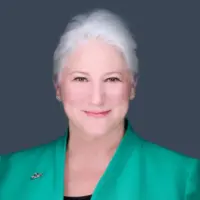
Elaine Russell Reolfi
President & CEO
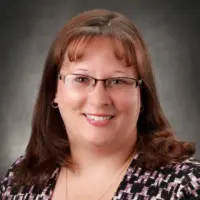
Rebecca Chessman, LPCC-S
Chief Compliance & Infrastructure Officer

Abby Geiselman
VP Human Resources
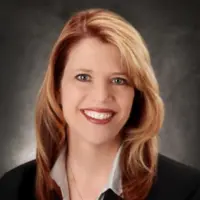
Michele Heberling, PhD, LPCC-S
Chief Clinical Officer
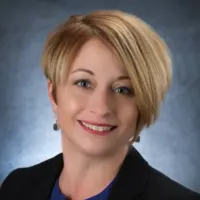
Melissa Hoch, CPA
CFO
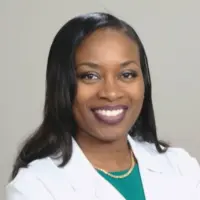
Osamuedemen D. Iyoha, MD
Medical Director Psychiatric Services
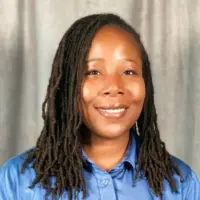
Ashlie Martin, MD
Medical Director Addiction Medicine
Accreditations

The Commission on Accreditation of Rehabilitation Facilities (CARF) is a non-profit organization that specifically accredits rehab organizations. Founded in 1966, CARF's, mission is to help service providers like rehab facilities maintain high standards of care.
CARF Accreditation: Yes
Contact Information
1680 Nave Rd SE
Massillon, OH 44646
